Today’s Current Affairs: 25th Apr 2023 for UPSC IAS exams, State PSC exams, SSC CGL, State SSC, RRB, Railways, Banking Exam & IBPS, etc
Table of Contents
National Technology Centre For Ports, Waterways And Coasts:
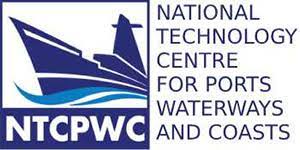
Union Minister of Ports, Shipping and Waterways will inaugurate the National Technology Centre for Ports, Waterways and Coasts (NTCWPC) at IIT Chennai.
- National Technology Centre for Ports, Waterways and Coasts (NTCWPC) is being set up under the Shipping Ministry’s flagship Sagarmala Programme.
- It has been established in IIT – Discovery Campus at Chennai in Tamil Nadu at the cost of ₹77 crore.
- It works as the technology arm of the Ministry of Shipping and provides the needful technological support to ports, IWAI and other institutions.
- Mandate is to develop cutting-edge technologies and application products to provide solutions to various challenges faced by the Ports and Shipping Sector.
- It has world-class capabilities for undertaking 2D and 3D investigations of research and consultancy nature for the Port, Coastal, and Waterway sector across all disciplines.
Sagarmala Programme:
- It is the flagship programme of the Ministry of Shipping.
- Objective is to promote port-led development in the country through harnessing India’s 7,500 km long coastline, 14,500 km of potentially navigable waterways and strategic location on key international maritime trade routes.
‘ARTSENS’ Device:
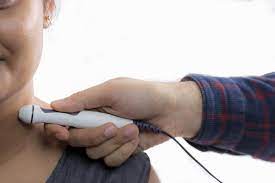
Researchers at the Indian Institute of Technology-Madras (IIT-M) recently developed a device called ‘ARTSENS’ to assess the health and age of blood vessels and thereby provide early screening for cardiovascular diseases.
- ‘ARTSENS’ Device is a novel, non-invasive device to assess the health and age of blood vessels and thereby provide early screening for cardiovascular diseases.
- It has been developed by Healthcare Technology Innovation Centre at IIT Madras.
- It is intended for regular medical check-ups, even by non-experts, to evaluate and anticipate vascular health.
- It is powered by a proprietary non-imaging probe and an intelligent computing platform.
- ARTSENS can assess the effect of molecular and protein-level changes in the vessel wall caused due to disease and ageing by measuring the material property in a completely non-invasive and accurate manner.
- The device comprises pressure cuffs to be affixed at the upper arm and thighs and a probe applied to the surface of the neck to detect the carotid artery.
- It measures carotid arterial stiffness, aortic pulse wave velocity and central blood pressure, all three being important markers of cardiovascular health.
The State Of The World’s Children 2023:
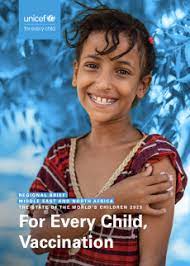
UNICEF released its global flagship report ‘The State of the World’s Children 2023: For Every Child, Vaccination,’ highlighting the significance of childhood immunization.
- Immunization, also known as vaccination, is the process of protecting an individual or a population from disease by introducing a substance that stimulates the body’s immune system to recognize and fight the disease-causing agent, such as a virus or bacteria.
Findings of the report are:
- The decline in vaccine confidence globally Over a third of the 55 countries studied for vaccine confidence showed a decline.
- The largest decline in childhood immunization in 30 years A total of 67 million children missed out on vaccinations between 2019 and 2021.
- In 2022, the number of measles cases was more than double the total in the previous year.
- Existing inequities in vaccination access Unvaccinated children often live in hard-to-reach communities such as rural areas or urban slums.
- There is a growing threat of vaccine hesitancy due to factors such as access to misleading information and declining trust in vaccine efficacy.
India-specific findings:
- Decrease in the number of zero-dose children during the pandemic Between 2020 and 2021, the number of zero-dose children in India decreased from 3 million to 2.7 million.
- However, India was among the top 20 countries with the largest numbers of zero-dose children
- Improvement in the ‘Importance Given to Vaccines’ 98% of the population in India currently perceive vaccines as important for children
Water Budget : Kerala
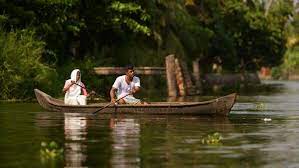
Kerala became the first state to adopt a water budget, as a solution to water scarcity during summer months to ensure equitable water distribution.
- A water budget is a tool used to manage water resources by estimating the total amount of water available in a region and the amount of water used by different sectors.
- It helps in making informed decisions about water use
- It helps in Identifying areas of water scarcity
- It helps Developing strategies for equitable water distribution.
- It Create awareness about proper water use and avoiding wastage.
UDAN 5.0:
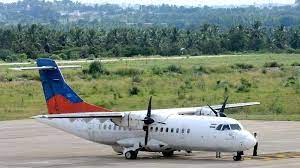
The Ministry of Civil Aviation in India has launched the 5th round of the Regional Connectivity Scheme (RCS) – Ude Desh Ka Aam Nagrik (UDAN) to improve connectivity in remote and regional areas of the country.
- UDAN Scheme was launched as a Regional Connectivity Scheme (RCS) under the Ministry of Civil Aviation in 2016, to provide affordable, economically viable and profitable air travel on regional routes to the common man even in small towns.
- It envisages providing connectivity to un-served and underserved airports of the country through the revival of existing airstrips and airports.
UDAN 5.0:
- No predetermined routes would be offered.
- Only Network and Individual Route Proposal proposed by airlines will be considered.
- The same route will not be awarded to a single airline more than once, whether in different networks or in the same network.
- Airlines would be required to commence operations within 4 months of the award of the route.
- Earlier this deadline was 6 months
Major Economies Forum (MEF) On Energy And Climate:

The Leaders Meeting of the Major Economies Forum on Energy and Climate Change has acknowledged climate change as a major challenge.
- The meeting was attended by the Heads of State and Ministers of 20 major economies of the world.
- Purpose is Facilitating dialogue among major emitting countries (both developed and developing) to advance efforts against climate change
- Launched in 2009 by US President Barack Obama
- 20 major economies including India, Australia, Brazil, China, UK, UAE, etc.
- MEF economies account for roughly 80% of global GDP and global greenhouse gas (GHG) emissions
- Focus Achieving International Energy Agency’s (IEA’s)
- “Credible Pathways to 1.5°C”, through Decarbonizing Energy;
- Reducing deforestation to net zero;
- Launching a Methane Finance Sprint to cut methane emissions;
- Accelerating hydrofluorocarbon (HFC) phasedown under Kigali Amendment;
- Accelerate CCUS technologies through a COP 28 Carbon Management Challenge
Hakki Pikki Tribal Community:
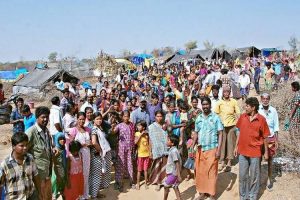
More than 181 members of the Hakki Pikki tribal community from Karnataka are stuck in violence-hit Sudan.
- The Hakki Pikki tribe is a semi-nomadic tribe traditionally engaged in bird catching and hunting, living in forest areas in west and south India.
- It is a Scheduled Tribe in Karnataka and their origin is said to be an ancestral relation with the legendary Ranapratap Singh.
- The Hakki Pikki tribe is believed to have originated from Gujarat and Rajasthan and migrated to south India via Andhra Pradesh.
- The tribe is divided into four clans and has a population of 11,892 in Karnataka.
- The 4 clans are Gujaratia, Panwar, Kaliwala and Mewaras and can be equated with castes in the traditional Hindu society.
- The usual age of marriage among the tribe is 18 for women and 22 for men, and cross-cousin marriages are preferred.
- The society is matriarchal, and Monogamy is the norm.
- Hakki Pikkis in Karnataka follow Hindu traditions and celebrate all Hindu festivals.
- Education levels among the Hakki Pikkis are still low.
- The forest is the main natural resource of the Hakki Pikki.
- The tribe has faced challenges due to stricter wildlife protection laws, leading them to shift from hunting to selling herbal oils, spices, and plastic flowers in local temple fairs.
Migration to Africa: - In recent years, members of the Hakki Pikki tribe have been travelling to African countries to sell their products as there is a huge demand for Ayurvedic products in the continent.
Darwin’s Theory Of Evolution : Voiced Against NCERT Decision
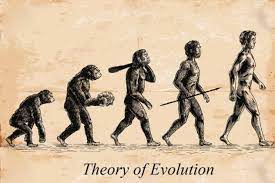
The scientific community voiced against NCERT’s decision to remove Darwin’s theory of biological evolution from Class 10 CBSE textbooks.
- Charles Darwin is known as the father of evolution due to his contribution to the establishment of the theory of evolution.
Darwin published his concept of evolution in his book entitled “The Origin of Species”. - Ideas by Darwin on the theory of natural selection:-
- The species keep on changing or evolving with time.
- As the environment changes, the requirements of the organisms also change and they need to adapt to their new environment.
- According to the natural requirements, the phenomenon of change over a period of time is known as adaptation.
- According to Darwin’s theory, only higher changes tend to get naturally selected and lower ones are automatically eliminated.
- This leads to progressive evolution and not all the adaptations are able to contribute.
- All the organisms had a common ancestor at some point in time and this kept on diverging since then according to Darwin.
- As per Charles Darwin, evolution is a gradual and slow process.
Darwinism consists of five principles :
- Over-production or prodigality of over-production: Many more individuals are born in each generation that will be able to survive and reproduce.
- Variation and Heredity: There is natural variation among individuals of the same species. Many of the favourable adaptations are hereditary and are passed on to the progeny of future generations.
- Struggle for existence: Organic beings increase by a geometrical ratio, while food production only increases in an arithmetic ratio such that in a very short time, an area will be overpopulated with any one species unless something happens to check the increase. This struggle for existence is threefold as given below:-
- Intraspecific struggle: The Intraspecific struggle is found among Individuals of the same species.
- Interspecific struggle: – It is found among organisms of different species living together.
- Struggle with the environment: Living organisms struggle with adverse environmental conditions like floods, cold waves, heat waves, and earthquakes, etc.
- Survival of the fittest or natural selection: Individuals with certain Characteristics have a better chance of surviving and reproducing than others with less favourable ones.
- Modifications of species: Gradual modification of species could have occurred over long periods of geological time through additive processes occurring in the past in the same manner as they are occurring in the present.
Vault Managers : SEBI

SEBI issued a procedure for vault managers to seek prior approval for the change.
- The vault manager is regulated as a SEBI intermediary for providing vaulting services meant for gold deposited to create electronic gold receipts (EGRs).
- Electronic gold receipts is a gold exchange measure by SEBI, wherein the yellow metal can be traded in the form of electronic gold receipts.
- The obligations of the vault manager include accepting deposits, storage, and safekeeping of gold, creation as well as withdrawal of EGR, grievance redressal, and periodic reconciliation of physical gold with the records of the depository.
- Under New the procedure, an application should be made by the vault managers to the regulator for prior approval through the Intermediary Portal, according to a circular.
- Applications for fresh registration under a change in control shall be made to Sebi within six months from the date of prior approval.
- The matters which involve a scheme of arrangement and need sanction from the National Company Law Tribunal (NCLT), the vault manager would have to ensure that the application seeking approval for the proposed change in control would be filed with Sebi before applying with NCLT.
- The validity of such in-principle approval from Sebi would be three months within which the relevant application should be made to NCLT.
- Within 15 days from the date of the order of NCLT, the vault manager would have to submit the required documents to SEBI for final approval.
Second Home For Cheetahs : Gandhisagar Wildlife Sanctuary

Gandhisagar Wildlife Sanctuary will be developed as a second home for cheetahs in the coming times.
- Gandhi Sagar Wildlife Sanctuary is situated in northwestern Madhya Pradesh, with one of its boundaries running along the border of Rajasthan.
- The sanctuary was notified in 1974.
- Its vast expanse lies within the Mandsaur and Neemuch districts of Madhya Pradesh.
- River Chambal flows through the sanctuary, dividing it into two parts.
- The principal tree species found in the Gandhi Sagar Wildlife Sanctuary are Khair, Salai, Kardhai, Dhawda, Tendu, Palash and the like.
- Herbivores like Chinkara, Nilgai and Spotted Deer, and carnivores like the Indian Leopard, Striped Hyena and Jackal are found in good numbers in the region.
- The reservoir also has a good population of crocodiles, fish, otters and turtles.




